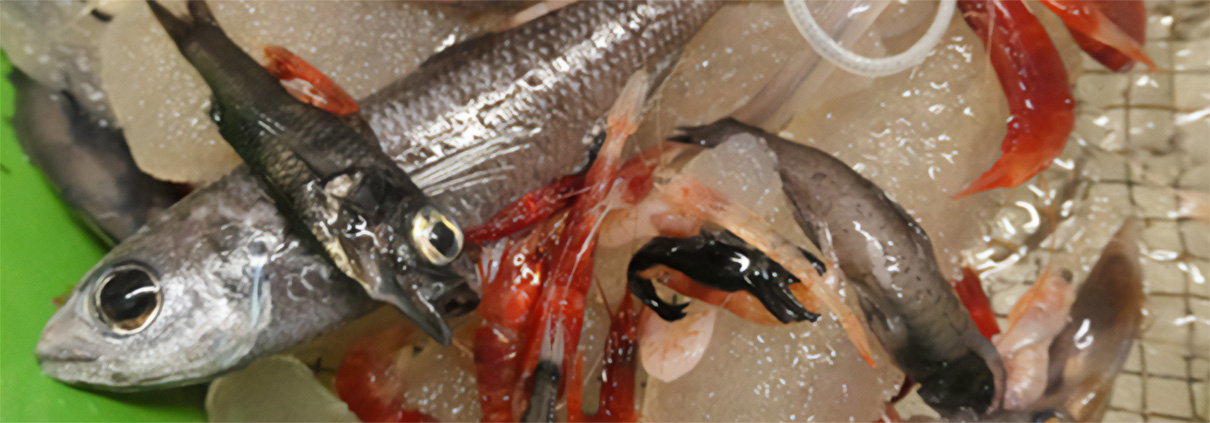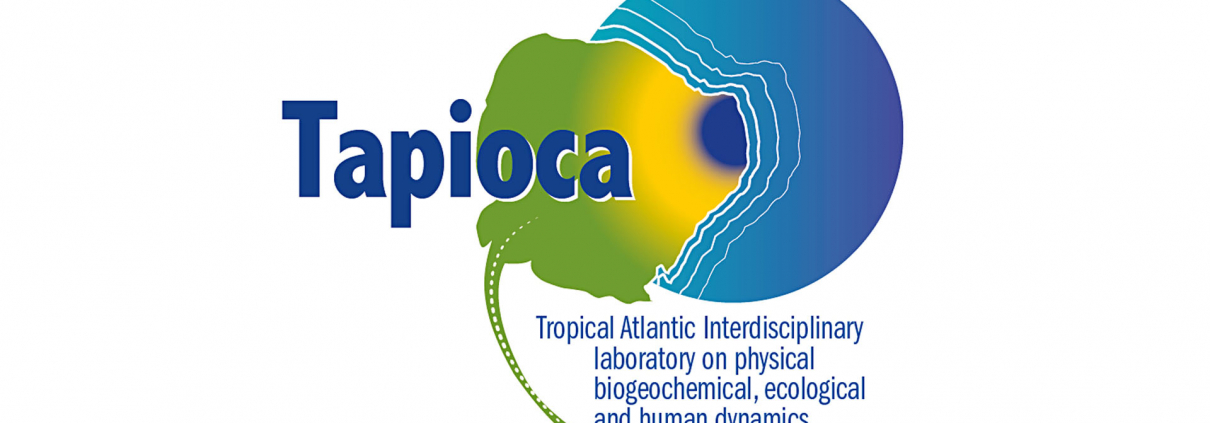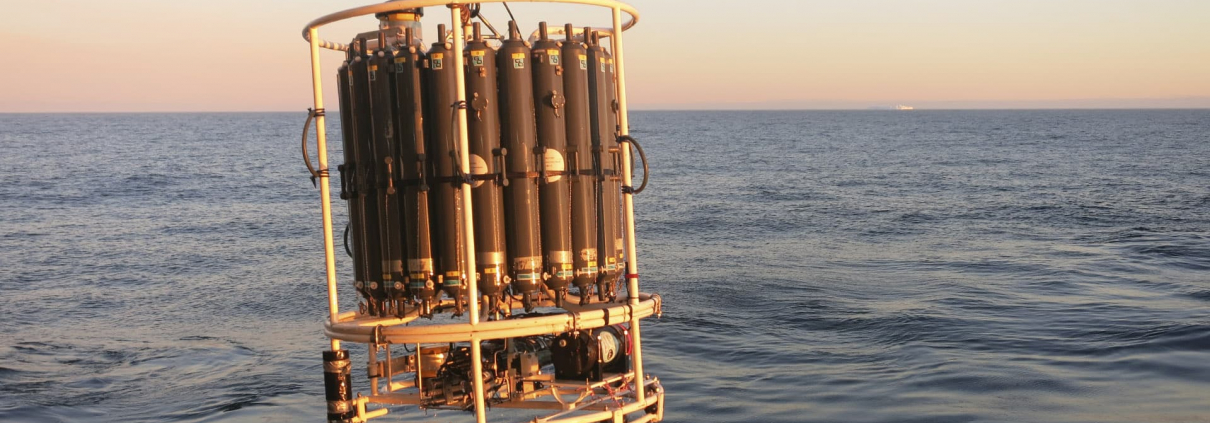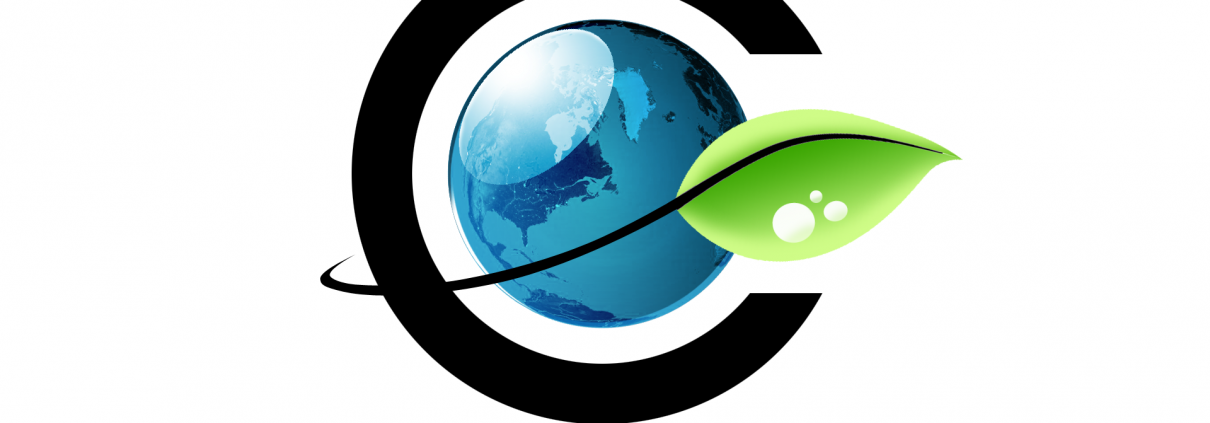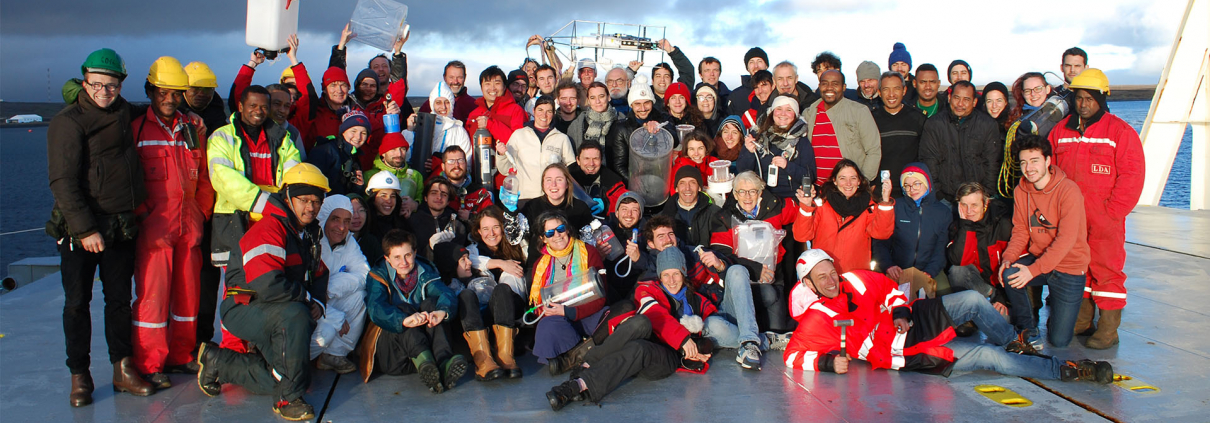The Warmalis 3 oceanographic campaign!
Oceanographic Campaign Warmalis 3: Understanding the Functioning of the Pelagic Oceanic Ecosystem and Ultimately Determining its Influence on Tuna Resources in the Western and Central Pacific Region
The WARMALIS 3 campaign, taking place from September 25 to November 8 aboard the R/V ANTEA, aims to better understand the functioning of the pelagic oceanic ecosystem and determine its influence on tuna resources in the western and central Pacific region, which account for more than 50% of global catches. In particular, the campaign studies intermediate trophic levels (zooplankton and micronecton), which constitute the primary food for all large pelagic species in the Pacific. To achieve this, biological data (micronecton trawls, zooplankton nets, EK80 sonars, and acoustic profilers), as well as physical and chemical data, are collected.
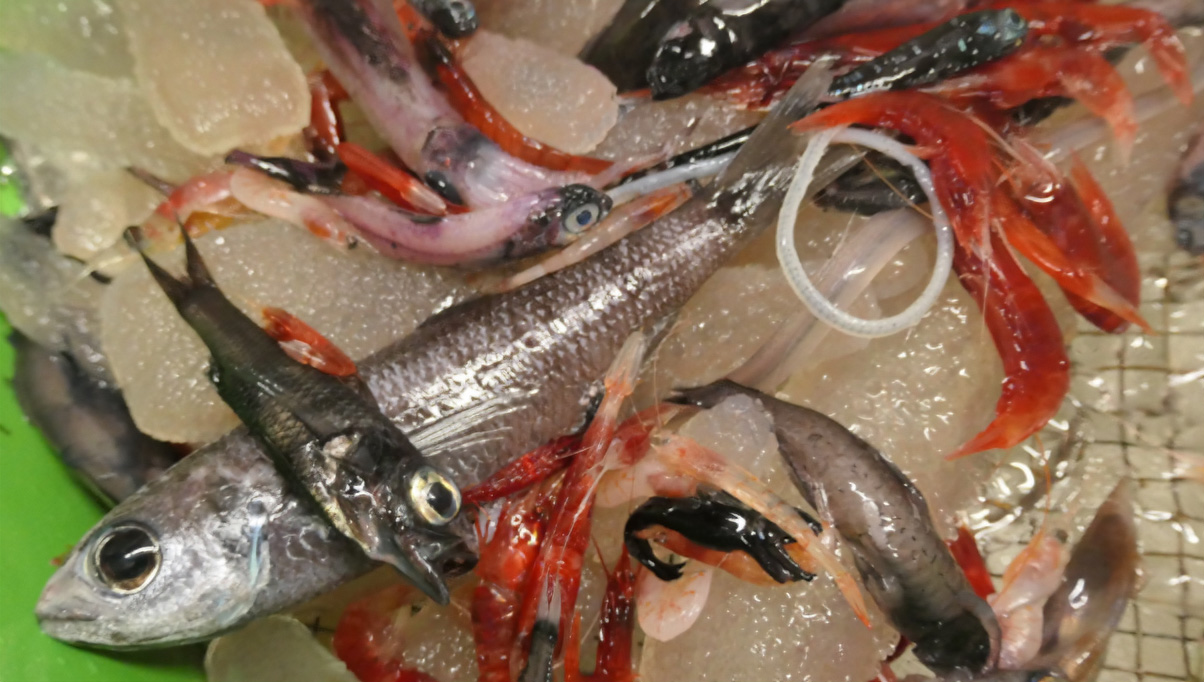
Example of micronecton capture, with gelatinous organisms, small fish, and shrimp commonly consumed by tuna and other top predators (Photo: V. Allain, SPC-IRD).
WARMALIS 3 is the last in a series of three campaigns (2021, 2022, 2023) part of the MICROPAC project (Micronecton in the Pacific, 2021-2023) led by Christophe Menkès (IRD/UMR ENTROPIE) and Valérie Allain (CPS) with partner units: MIO, IMAGO, LEMAR, LOPS, LEGOS, and CLS. After exploring the western and central Pacific from south to north in previous years, the crew is undertaking a 45-day east-to-west traverse along the equator this year.
Four colleagues from LEMAR are on board: Laure Barbin, Jérémie Habasque, Anne Lebourges, and Anaïs Médieu.
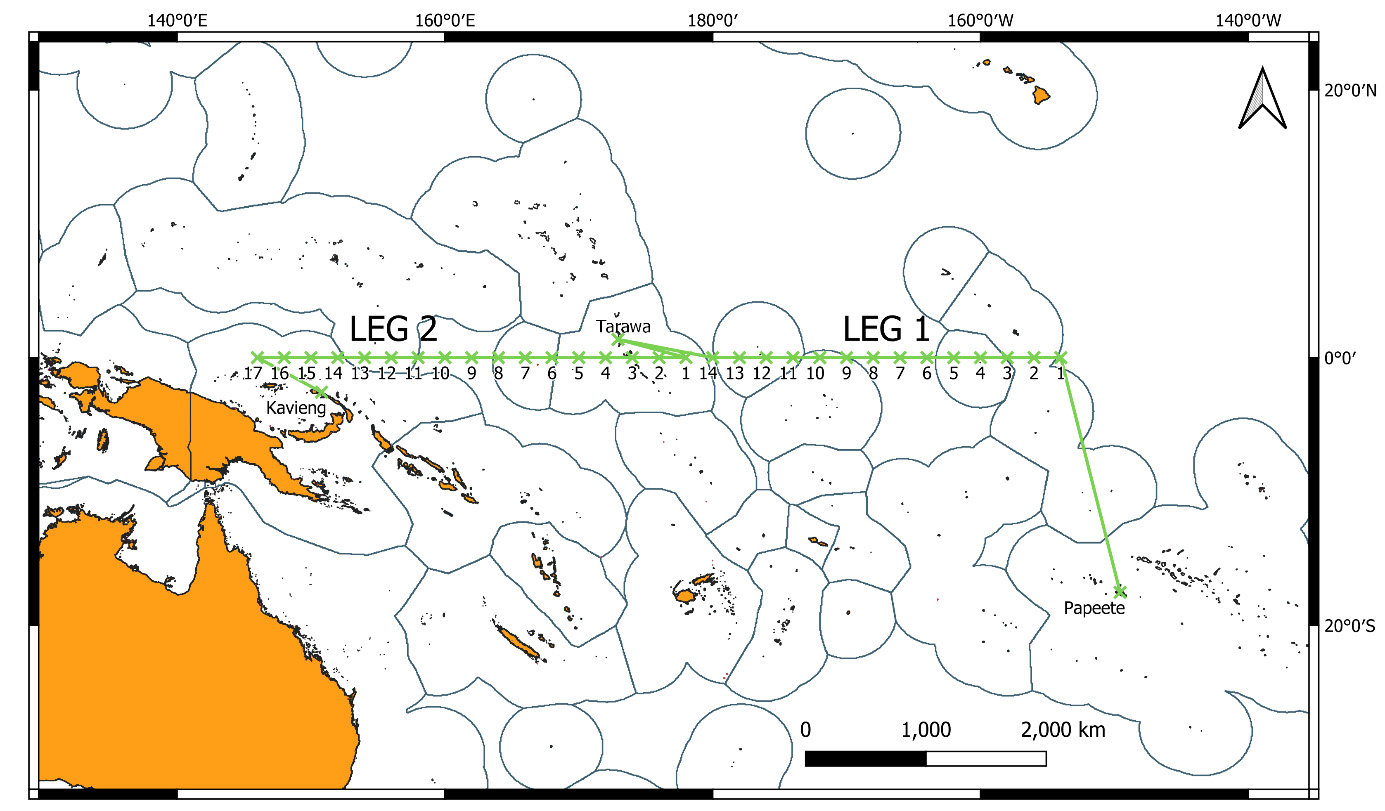
Campaign plan for Warmalis 3.
You can follow the ship’s log on the mission blog.

